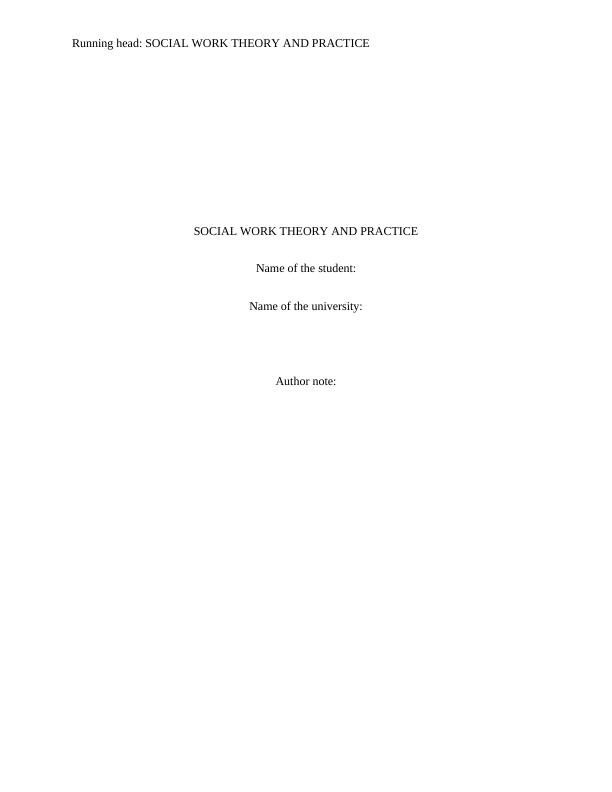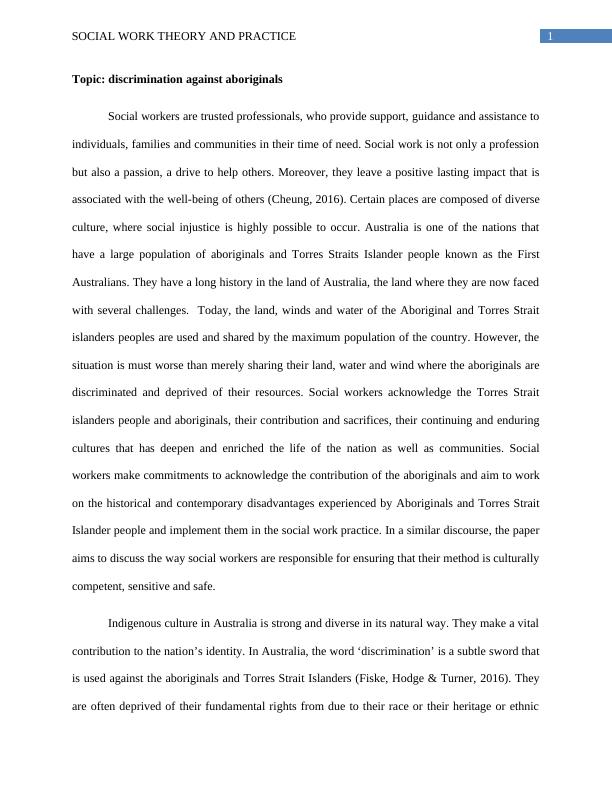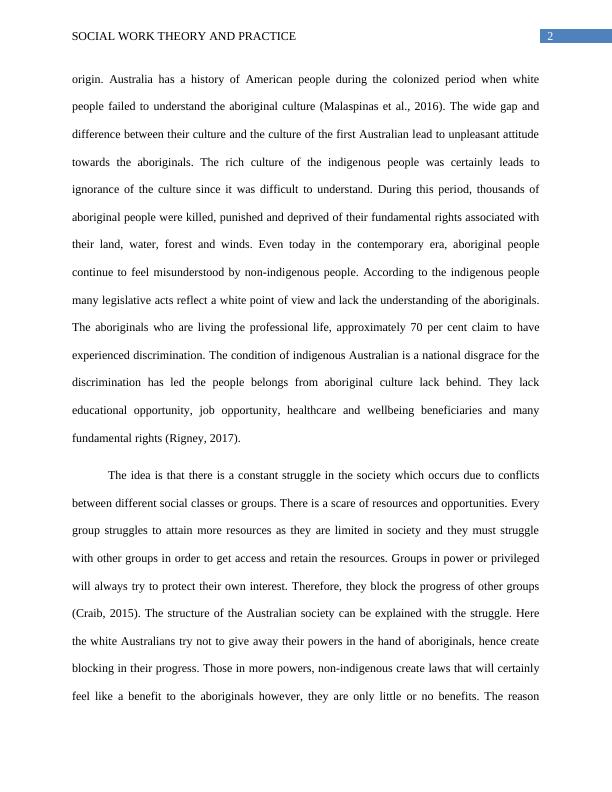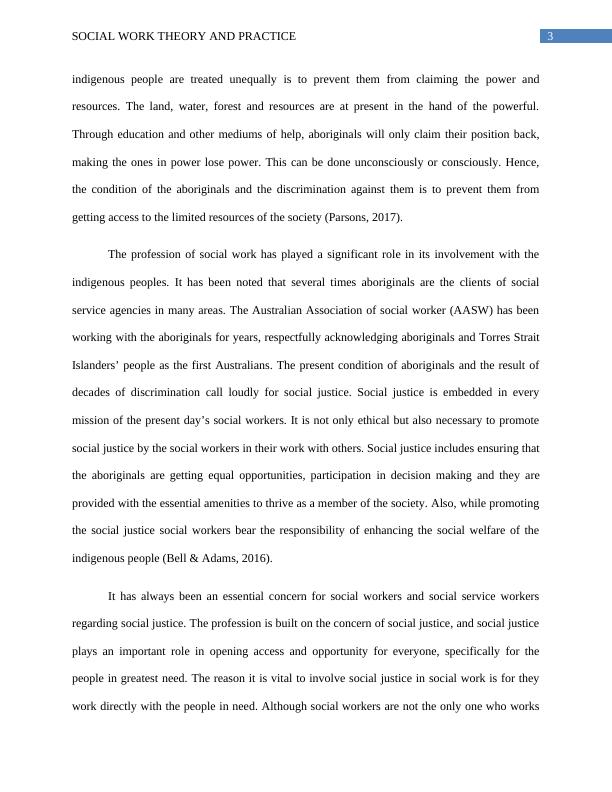Discrimination Against Aboriginals: Social Work Theory and Practice
Exploration of the passion social work has for social justice and equality and the ideas about its cause and effect on the lives of individuals, families, communities and society – nationally and internationally.
11 Pages3235 Words85 Views
Added on 2023-01-16
About This Document
This article discusses the discrimination faced by aboriginals in Australia and the role of social work theory and practice in addressing this issue. It explores the importance of cultural competence and promoting social justice for the well-being of indigenous communities.
Discrimination Against Aboriginals: Social Work Theory and Practice
Exploration of the passion social work has for social justice and equality and the ideas about its cause and effect on the lives of individuals, families, communities and society – nationally and internationally.
Added on 2023-01-16
ShareRelated Documents
End of preview
Want to access all the pages? Upload your documents or become a member.
Aboriginal and Torres Islander History: Cultural Heritage and Discrimination
|5
|1476
|137
Becoming A Social Worker | Assessment
|14
|3074
|36
Contemporary Indigenous Issues (DOC)
|16
|4299
|81
Health And Welfare Of Social Concerns
|16
|4391
|14
Racism and Nursing Care
|12
|3322
|65
Aboriginal and Torres Strait Islander People
|4
|1864
|69




